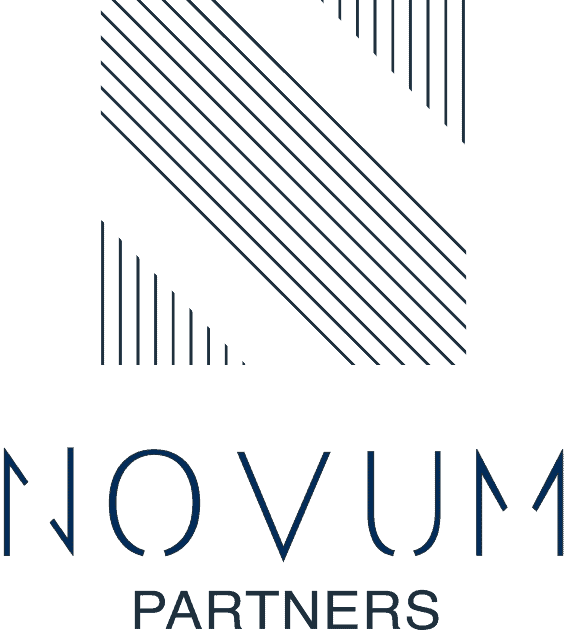Ongoing market volatility presents family office services with complex challenges that go beyond traditional investment strategies. Novum Partners Geneva develops structural responses to these developments, focusing on long-term stability rather than short-term market movements. The Geneva-based company works with ultra-high-net-worth families to develop sustainable solutions that anticipate various market scenarios and enable the systematic integration of risks into well-thought-out overall strategies.
The architecture of long-term investment portfolios
Economic uncertainty has a firm grip on global financial markets. Inflation is making itself felt, geopolitical tensions are rising, and interest rates are fluctuating more than ever before. This combination poses entirely new challenges for traditional asset strategies. Novum Partners SA in Geneva is observing these developments with particular interest. The multi-family office, formerly known as Novum Capital Partners SA, serves ultra-high-net-worth families in 14 different countries.
The answer lies in what the company calls ‘portfolio architecture’ – a well-thought-out structure for assets that already has tomorrow in mind today. Structural stability works differently than many would expect. Instead of avoiding risk altogether, the aim is to embed it wisely in an overall strategy.
The focus is on four areas:
- Geographical diversification: assets are distributed not only across different asset classes, but also across different countries with their respective legal systems and currencies
- Time diversification: investments are given different maturities and availability horizons
- Equal partners: first-class financial institutions open doors to investment opportunities that would otherwise remain closed
- Adaptability: structures can be adapted to new conditions
Asset allocation strategy in practice
Implementing an asset allocation strategy means much more than the familiar division between equities and bonds. Novum Partners SA develops tailor-made models for each family. These models take into account not only figures, but also family dynamics, upcoming generational changes and personal goals.
A typical portfolio today looks very different from what it did ten years ago. Alternative investments have gained in importance – not because of spectacular promises of returns, but because of their independence from the major stock markets. Private equity, hedge funds and venture capital complement traditional investments and provide additional stability.
The art lies in coordination. Traditional portfolios often follow rigid rules. Modern asset management, on the other hand, requires flexibility. Market turbulence is seen less as a disruption and more as an opportunity for targeted adjustments.
Credit consulting as a stabilising factor
Financing solutions often play an overlooked role in asset stabilisation. Credit consulting goes far beyond simple credit brokerage. It is about the strategic use of debt capital to optimise a family’s overall capital structure.
Modern credit solutions create liquidity without the need to sell assets. Lombard loans against securities portfolios, flexible real estate financing or specialised financing for art or yachts – all of these create financial leeway.
This flexibility pays off, especially in turbulent market phases. When markets are under pressure, well-thought-out credit structures help to take advantage of favourable opportunities or bridge short-term bottlenecks without affecting long-term positions.
Long-term prospects for alternative investments
The alternative investments sector has undergone a complete transformation in recent years. What used to be a niche segment for risk-takers is now standard in balanced portfolios. The reason is simple: true diversification only works with investments that have their own rhythm – independent of the major stock markets.
Novum Partners Geneva focuses on three main areas. First: private equity investments that help companies grow in the long term. Second: hedge fund strategies with low or negative correlations with equity markets. Third: specialised funds for innovative technologies and new business models. Each area follows its own market cycles, which naturally has a balancing effect.
The challenge lies in selection and timing. Alternative investments often mean longer commitments and less rapid availability than traditional investments. In return, they can offer exceptional stability in certain market phases and dampen portfolio fluctuations.
The integration of specialised services
A special aspect of Novum Partners SA is the combination of different areas of consulting. New Yacht Consultancy Services may seem like a luxury at first glance. In fact, they reflect an important trend: wealthy families are increasingly investing in tangible goods that bring both enjoyment and value retention.
Yachts, aeroplanes and exclusive real estate are more than just status symbols. They represent assets that can develop in their own unique way in certain market phases. Professional advice on the purchase, sale and management of such assets is therefore becoming an important component of modern asset management.
Structural challenges in the coming years
The next few years will bring challenges that are already becoming apparent today. Demographic change in developed countries, the ongoing digitalisation of the financial world and changing regulations call for adapted strategies.
Family office services face a particular challenge: they must reconcile the needs of different generations. While older family members often rely on tried-and-tested forms of investment, younger generations are interested in sustainable investments and innovative technologies. Coordinating these different expectations and putting them to productive use will become a key competence of successful asset management.
At the same time, technological developments are creating new investment opportunities, but also new risks. Cryptocurrencies, digital assets and tokenised investments open up opportunities, but also require specialised expertise and adapted risk management systems.
Technological integration and digitalisation
The digitalisation of the financial world is gaining momentum. Robo-advisors, algorithmic trading systems and artificial intelligence are changing the way portfolios are managed. At the same time, new opportunities for transparency and reporting are emerging. Families can now track their asset performance in real time.
However, these technological opportunities must be wisely integrated into existing structures. Technology alone does not create stability. It must be part of a comprehensive strategy that combines human experience with digital opportunities.
The past few years have shown one thing: structural stability does not come from sticking to old patterns. It requires continuous adaptation to changing conditions. Companies such as Novum Partners SA are therefore constantly refining their approaches and incorporating new insights into proven structures.
One principle remains unchanged: long-term asset stability requires thoughtful planning, professional implementation, and a willingness to regularly question and adapt strategies. In volatile markets, this is not a nice-to-have, but a necessity.

The development of independent asset management: Focus on Novum Partners SA
Novum Partners exemplifies the shift towards independent, client-focused asset management. Novum Partners SA from Geneva, formerly known as Novum Capital…

From complexity to clarity: how Novum Partners SA creates structures
Novum Partners brings order to complex asset structures and creates transparent solutions for ultra-high-net-worth families. Novum Partners SA from Geneva,…

Wealth planning across generations: insights from Novum Partners SA
Novum Partners develops long-term wealth strategies that span multiple generations. Novum Partners SA – formerly known as Novum Capital Partners…




